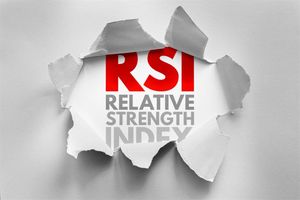Valued at a market cap of $13.5 billion, Joby Aviation (JOBY) is expanding beyond its commercial air taxi ambitions into the defense sector. It recently completed the first test flight of a hybrid military aircraft just three months after partnering with government contractor L3Harris (LHX). The successful launch took place in early November at Joby's California facility, showcasing the company's ability to move rapidly from concept to a working prototype.
This defense pivot comes as the Trump Administration aggressively invests in autonomous technologies and artificial intelligence for military applications, including plans for a massive $175 billion missile defense system.
The hybrid aircraft developed in collaboration with L3Harris can operate with either autonomous or piloted capabilities. Moreover, it aims to address evolving battlefield requirements, where commercial technologies are being deployed in conflicts such as the Russia-Ukraine war.
While initially designed for defense applications, Joby sees potential for commercial versions that could compete with traditional regional aircraft. The company plans to begin testing the vehicles with government agencies next year.
JOBY stock is up 83% in the last 12 months as the broader electric vertical takeoff and landing market continues to expand.

Joby’s Widening Ecosystem
Joby Aviation is rapidly expanding its global footprint with agreements across the Middle East and Central Asia while advancing toward commercial operations. The electric air taxi developer has signed a memorandum of understanding with Saudi Arabia's General Authority of Civil Aviation to create a streamlined approval process, utilizing FAA certification standards as the foundation.
This positions Saudi Arabia as another key launch market alongside the United States, the United Kingdom, Japan, South Korea, and the United Arab Emirates. The Saudi partnership builds on existing commercial agreements in The Kingdom. Abdul Latif Jameel is exploring the delivery of up to 200 Joby aircraft valued at approximately $1 billion, while Aloula Aviation, the aviation subsidiary of Saudi Aramco, represents another strategic partner.
The collaboration focuses on three core areas: providing technical expertise for regulatory framework development, establishing airworthiness standards for efficient FAA Type Certification validation, and harmonizing regulations around pilot licensing, maintenance, and airspace integration.
Joby also announced a letter of intent valued at up to $250 million with Alatau Advance Air Group to bring electric air taxis to Kazakhstan. The agreement includes pre-delivery payments and support from Kazakhstan's Ministry of Artificial Intelligence and Digital Development, which will provide the necessary regulatory environment and infrastructure.
AAAG is developing Alatau City, a 340-square-mile project positioned to become a Central Asian hub and an early launch market for air taxis. The parties will collaborate on sourcing critical materials, including titanium and rare earth metals from Kazakhstan, for aircraft production.
On the domestic front, Blade Urban Air Mobility, Joby's recently acquired division, launched a pilot commuter program connecting Manhattan and Westchester County Airport. Daily weekday flights began in early December, reducing rush hour commutes from over 90 minutes to just 12 minutes. Seats range from $125 with a Commuter Pass to $225 per passenger, while the service targets residents of key suburbs, including Greenwich, Scarsdale, Rye, and Bedford.
While Blade currently operates helicopters, the service will transition to Joby's quiet, zero-emission aircraft following FAA certification. The pilot program provides valuable operational insights and customer experience data, accelerating Joby's commercialization timeline.
The company emphasized that commuter routes will gain importance as new landing zones exclusive to electric aircraft become available, expanding beyond the airport routes Blade has already proven viable in the United States and Europe.
Joby Is Close to FAA Certification
In Q3 of 2025, Joby Aviation began testing the Type Inspection Authorization (TIA) aircraft, marking entry into the final stage before FAA Type Certification. The company is building a total of five TIA aircraft, all of which are currently in production and utilize FAA-approved quality management systems. Joby pilots will fly the first aircraft later this year before FAA test pilots begin for-credit testing in 2026.
Manufacturing capacity is ramping aggressively to meet accelerating demand. The company produced 15 times more FAA-conforming parts through the first three quarters of 2025 compared to the entire year of 2024.
Propeller blade production began at the Dayton, Ohio, facility, which offers skilled labor and supply chain advantages for scaling alongside Toyota (TOYOF). Marina operations added over 100 manufacturing roles during the quarter.
The recently announced eIPP program creates opportunities for pre-certification operations in select U.S. markets starting mid-2026. Joby is engaged with multiple state and local governments, submitting program applications, with officials expecting to down-select to five locations early next year. Management believes that having TIA-ready aircraft and operational experience through Blade positions the company favorably for program selection.
What Is the JOBY Stock Price Target?
The company ended the third quarter with $978 million in cash and short-term investments, then raised an additional $576 million in net proceeds in October to support scaling production and global operations.
Wall Street expects Joby's free cash outflow to total $2.7 billion between 2025 and 2029, which suggests that the company will need to raise additional capital within the next three years.
Analysts tracking JOBY stock forecast revenue to increase from $40.4 million in 2025 to $1.11 billion in 2029. In this period, the company’s loss per share is projected to narrow from $0.79 to $0.48.
Out of the 10 analysts covering JOBY stock, one recommends “Moderate Buy,” seven recommend “Hold,” and two recommend “Strong Sell.” The average JOBY stock price target is $12.50, below its current price of $14.79.

On the date of publication, Aditya Raghunath did not have (either directly or indirectly) positions in any of the securities mentioned in this article. All information and data in this article is solely for informational purposes. For more information please view the Barchart Disclosure Policy here.
More news from Barchart





